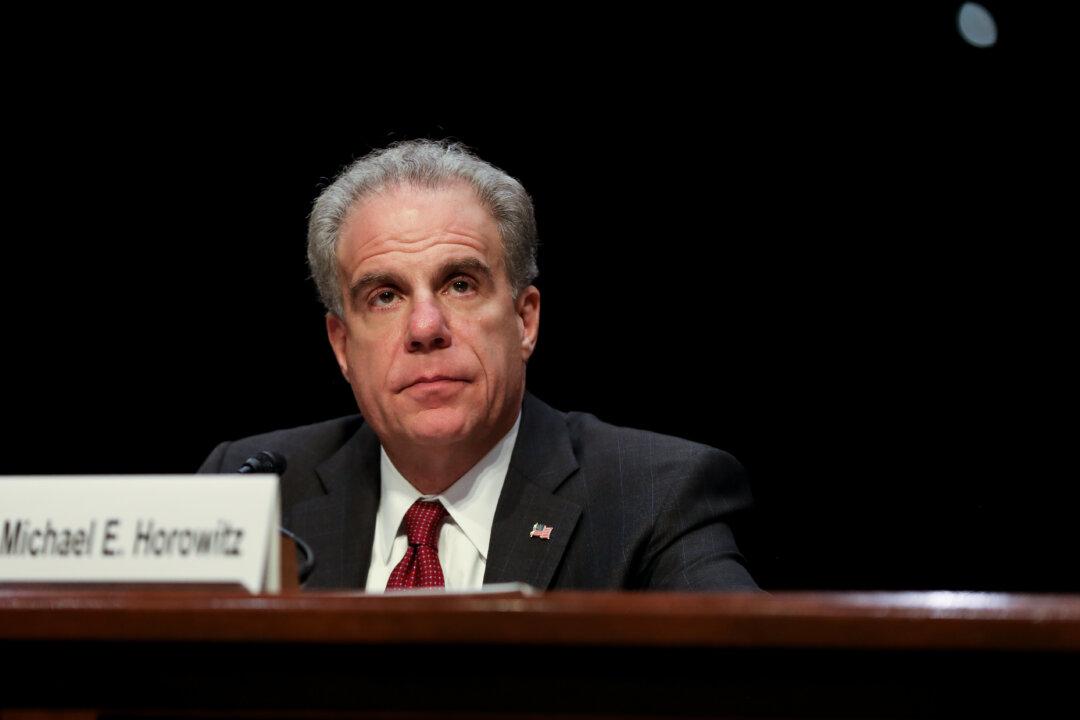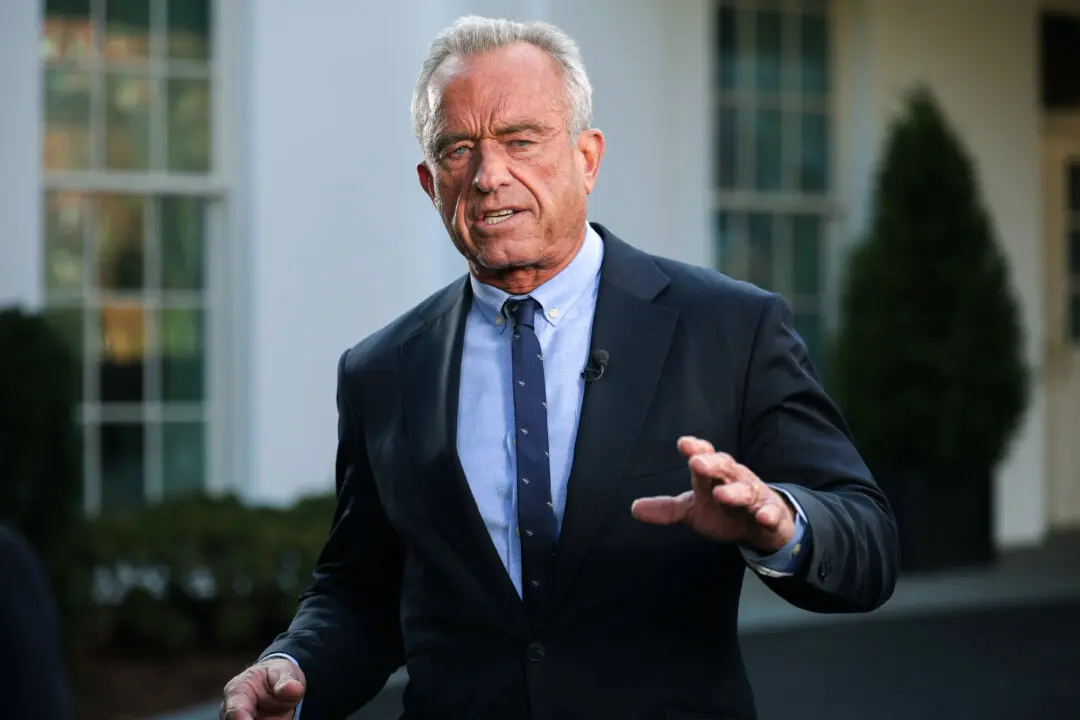Department of Justice Inspector General Michael Horowitz said that the FBI should have mulled shutting down surveillance of Donald Trump campaign aide Carter Page after learning about exculpatory information about him.
Horowitz told the Senate Homeland Security Committee in Washington on Dec. 18 that FBI officials should have considered ending the surveillance in January 2017 after no information was found supporting the allegations that Page was colluding with Russia. The government continued surveilling Page until September 2017.





